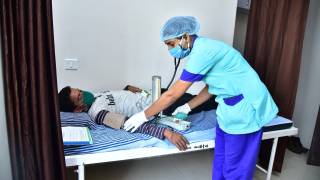Russia Launches Sputnik M Vaccine for Adolescents

The TASS media network reported today the recombinant human adenoviral-based, two-part Sputnik M Vaccine for adolescents had been approved for use in Russia.
The Deputy Director-General of the Gamaleya Research Institute of Epidemiology and Microbiology Denis Logunov stated at a press conference on November 24, 2021, "The use of the Sputnik M vaccine by people twelve to 17 years was authorized today.’
An earlier report indicated Sputnik M would become available for distribution in Russia by the end of 2021.
Human clinical trials for this reduced dosage Sputnik vaccine launched in Moscow at ten clinics on June 5, 2021. Sputnik M has tested doses containing 20% of the Sputnik V vaccine with about 400 teenagers.
The Sputnik M vaccine is produced with the HEK293 cell line and is produced as a liquid formulation containing 10¹¹ vp per 0·5 mL/dose.
Initially developed by the Gamaleya National Research Centre of Epidemiology and Microbiology in May 2020, the original two-dose Sputnik V vaccine was registered in Russia on August 11, 2020. Then the single-dose Sputnik Light vaccine was registered on May 6, 2021.
As of late November 2021, the Sputnik vaccines have been authorized in 71 countries.
However, neither the World Health Organization nor the U.S. FDA has yet to authorize any Sputnik vaccine. But the European Medicines Agency began its rolling-review process in March 2021.
These COVID-19 vaccines are based on adenovirus DNA, in which the SARS-CoV-2 coronavirus gene is integrated. The adenovirus is used as a "container" to deliver the coronavirus gene to cells and synthesize the new coronavirus's envelope proteins.
This process introduces the immune system to a potential enemy. Therefore, the cells will use the gene to produce the spike protein.
The person's immune system treats this spike protein as foreign and produces natural defenses, antibodies, and T cells. Furthermore, the Sputnik team believes that adenoviral vaccines provide more extensive efficacy than mRNA vaccines due to longer antibody and T-cell responses.
Results from a new study support those vaccine efficacy beliefs.
Real-world data from the Ministry of Health of the Republic of San Marino announced on November 24, 2021, indicates the Sputnik V vaccine is about 80% effective against coronavirus infection up to 8th months after administering the second dose.
Recently, The Lancet published results from a phase 1/2 study on November 2, 2021, that found 'most of the solicited adverse reactions from the Sputnik Light vaccine were mild, few were moderate. And no serious adverse events were detected.
As there is currently a surge of COVID-19 related fatalities in Europe and Russia, the Sputnik Team posted a presentation today on Countering New Cases Surge in Europe. @sputnikvaccine Tweeted the key slides from this presentation.
PrecisionVaccinations publishes fact-checked research-based vaccine news.
Our Trust Standards: Medical Advisory Committee
- Russia approves COVID-19 vaccine for teenagers, developer says
- RDIF announces major Sputnik V efficacy data from San Marino, an upcoming registration of the Sputnik M vaccine and reiterates v
- An open, non-randomised, phase 1/2 trial on the safety, tolerability, and immunogenicity of single-dose vaccine “Sputnik Light”
- Sputnik M Vaccine
- Key slides from Sputnik Team presentation
























